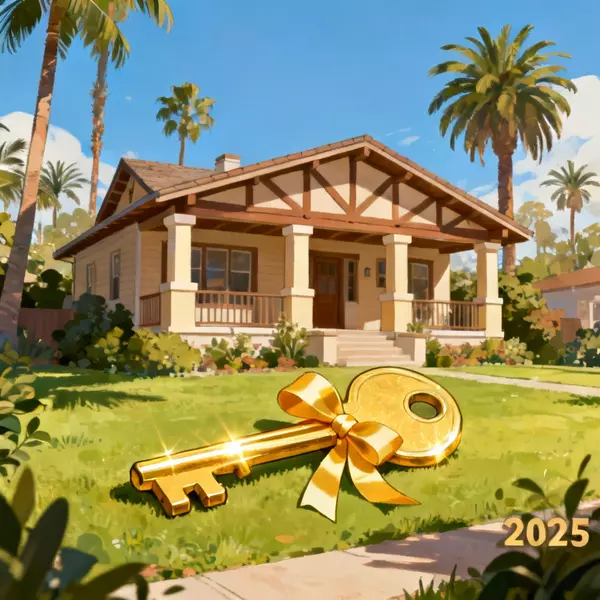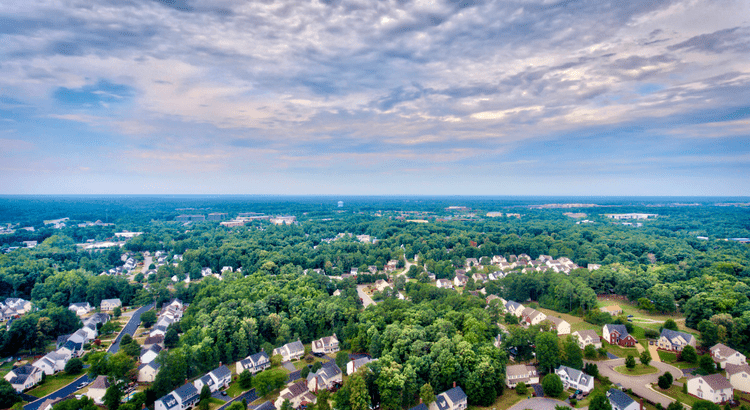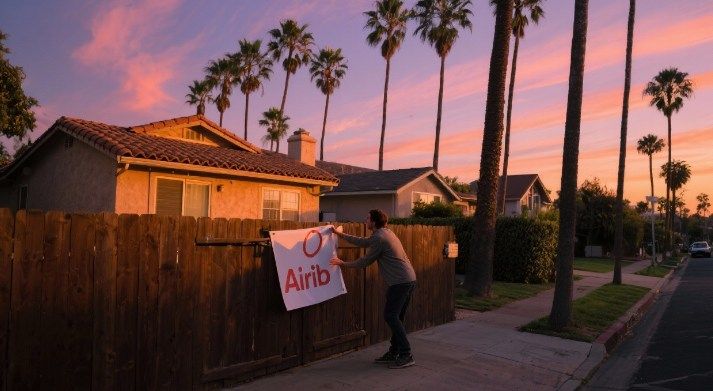Los Angeles Airbnb in Decline
Los Angeles Short-Term Rentals Face Sharp Decline as City Tightens Rules
Los Angeles is seeing a steep decline in short-term rental activity as city officials intensify enforcement of their Home-Sharing Ordinance, originally passed in 2018. The rules, which limit hosts to renting only their primary residence and cap short-term bookings to 120 nights per year unless an expensive extended permit is obtained, are pushing many homeowners off Airbnb and similar platforms.
Registrations and Listings Drop
According to city planning data, the number of official home-sharing registrations dropped 6% year-over-year between July 2024 and July 2025. Third-party platforms report even sharper declines:
- Hospitable estimates a 44% plunge in listings for Los Angeles.
- AllTheRooms reports a 13% drop across L.A. County.
- AirDNA, while showing fluctuations, noted double-digit declines in high-demand areas such as Malibu (–25%) and Pacific Palisades (–36%) since January source.
The combined pressures of stricter enforcement, higher permit fees, and growing risks of fines are leading many hosts to either exit the market or pivot toward mid-term rentals (30–180 days).
New Enforcement Powers and Hefty Fines
Earlier in 2025, the Los Angeles City Council approved stronger penalties for illegal operators:
- Base fines range from $1,000 to $16,000, depending on property size.
- Repeat violations can double or quadruple fines.
- City inspectors have been authorized to make undercover bookings to catch violators.
Although funding shortfalls mean some enforcement measures haven’t been fully implemented, the threat of higher fines has already chilled participation source.
Other legal actions underscore the crackdown: in September 2025, L.A. settled lawsuits against owners of illegal Hollywood “party houses” turned short-term rentals, collecting over $400,000 in penalties and returning rent-stabilized units to the long-term housing market source.
Why Hosts Are Shifting to Mid-Term Rentals
Mid-term stays offer smaller profits than nightly rentals but come with less risk:
- Investors and landlords report earning about 15–20% less than with short-term rentals — but still more than traditional year-long tenants.
- Guests typically include travel nurses, film industry professionals, students, and corporate workers on contracts.
- For a property that might net $10,000 a month as an Airbnb, a
mid-term tenant could still generate around $8,000 monthly without the same compliance headaches.
Airbnb itself has recognized the trend: in 2024, CEO Brian Chesky called mid-term stays a major growth focus, noting they now make up nearly one in five bookings globally.
ADUs and Affordable Housing Push
Another factor: as of 2025, Los Angeles formally banned accessory dwelling units (ADUs), such as backyard cottages or garage conversions, from being listed as short-term rentals. Instead, they must serve as long-term housing — part of the city’s broader effort to preserve supply during a housing crisis.
City officials argue that keeping ADUs and rent-controlled apartments out of the short-term market is necessary to prevent worsening affordability pressures. Critics, however, see the regulations as overly rigid, cutting off an important source of supplemental income for homeowners.
What’s Next:
Olympics Pressure and Future Rules
The upcoming 2026 World Cup and 2028 Los Angeles Olympics loom large. Analysts expect a surge in demand for short-term accommodations during both events, but activists warn of illegal “shadow hotels” springing up if the city doesn’t implement technological enforcement. L.A. is considering requiring Airbnb, Vrbo, and Booking.com to electronically verify permits, similar to New York City’s system that cut listings by 90% when adopted source.
The Bigger Picture
Los Angeles’ effort reflects a broader global pattern: cities are grappling with balancing tourism against housing affordability. While some hosts see opportunity in mid-term rentals, others are simply exiting the market, leaving once-profitable guesthouses empty.
For renters and housing advocates, the pullback could free up inventory in a region where vacancy rates remain low and rents among
the nation’s highest. For homeowners, however, the Airbnb era in Los Angeles is looking increasingly like a high-risk bet.
Categories
Recent Posts










GET MORE INFORMATION


